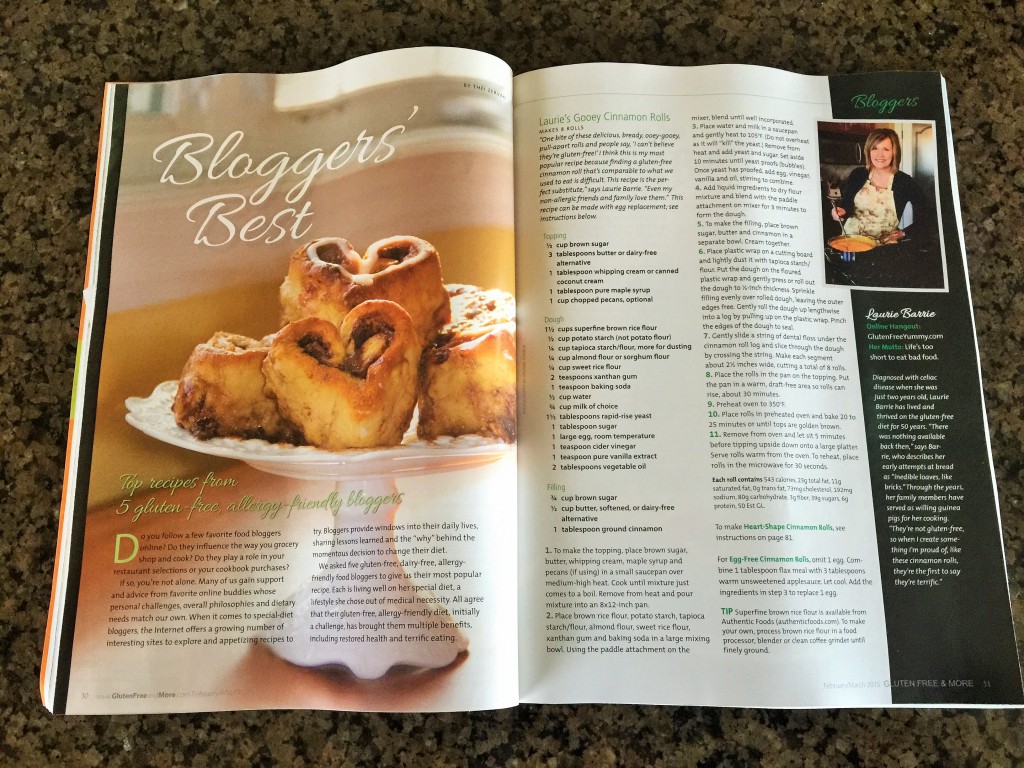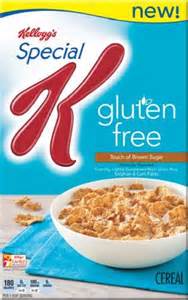You don’t miss what you’ve never tried. Diagnosed with a severe gluten intolerance at the age of two kept me from trying many foods others have eaten before having to change their diet to gluten-free. I have never tried a croissant or a burrito. Cinnamon rolls were off-limits (but I created a great gluten-free cinnamon roll version that was published in the 2015 February-March edition of Gluten-free & More magazine that my family says rivals regular cinnamon rolls.

General Mills and other cereal varieties have always been a no-no, but I remember desperately wanting to try my brother’s bowl of Lucky Charms when I was little girl. That is soon to change. Over the past number of years General Mills has noticed a slow decline in the cereal market. In order to boost sales they introduced gluten-free Chex in 2008. Realizing that the gluten-free market could potentially make up half their sales, they are now changing over all Cheerios to gluten-free, (due out sometime this summer), and have just reported that Lucky Charms will now move over to the gluten-free side later this year. You can read the full article on General Mills gluten-free cereals here. One of the best changes coming to General Mills is removing all dyes and artificial flavors by the year 2017!
Oats, which is the main grain used in Cheerios and Lucky Charms, is naturally gluten-free. What makes it intolerable to celiacs and those with a gluten intolerance is the cross contamination, either in the fields or in the manufacturing plants. General Mills have made changes to their production facilities in order to assure cross contamination does not occur. One other main manufacturer that has jumped on the gluten-free wagon is Kellogg’s. They have recently created a gluten-free cereal called Touch of Brown Sugar Gluten-free Special K. As they change over their cereals to gluten-free varieties, it would be nice if they could somehow get rid of the nasty sugar it contains, but as you know, change comes slowly. Click here for an article on the damage sugar does to our bodies.

As advocates for more stringent food regulations continue to push for higher standards from the food conglomerates, companies like General Mills and Kellogg’s will be forced to change or continue to see their profits decline. It is a good thing.

